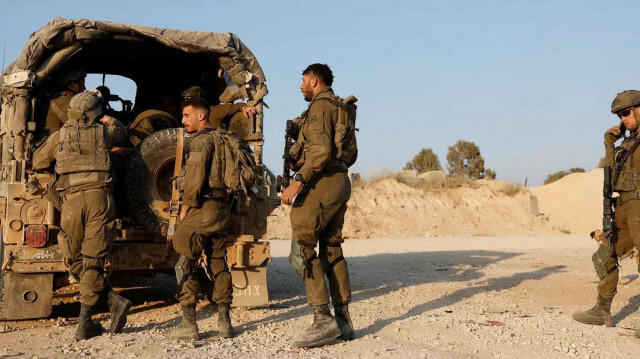
‘The withdrawal isn't a confidence-building measure to help the negotiators who went to Cairo for new talks on Sunday,' says Israeli media
The Israeli army's decision to withdraw all of its forces from the southern Gaza city of Khan Younis is not related to the negotiations on a hostage deal, an Israeli media outlet reported Sunday, citing senior Israeli military officials.
“As one officer explained, after the 98th Division had been operating in the Khan Yunis area for four months, such large-scale maneuvers were producing dwindling returns,” said Israel's Haaretz daily.
The military leaders, who preferred not to disclose their names, said the Israeli army “has long understood that keeping numerous troops essentially static in Gaza instead of moving them to fight in new areas endangered them because their fixed positions turned them into targets for terrorist cells,” the report said.
On a daily basis, the Al-Qassam Brigades, the military wing of the Palestinian group Hamas, announces the killing and wounding of Israeli soldiers and the destruction of military vehicles, broadcasting videos documenting some of their operations.
The Israeli military leaders said “the withdrawal isn't a confidence-building measure to help the negotiators who went to Cairo for new talks on Sunday…It was decided on strictly for operational reasons based on the security situation in the area and not due to American demands,” the report said.
Earlier in the day, an Israeli delegation left for Cairo to continue discussions on a prisoner exchange deal with Hamas, according to the Israeli Broadcasting Authority.
Israeli media reported early Sunday that the Israeli army had withdrawn its 98th Division, with its three brigades from Khan Younis.
According to Army Radio, there is only one brigade left in Gaza, the Nahal Brigade, which is responsible for securing the corridor established by the Israeli army to prevent Gazans from returning to the north.
The Israeli army has announced plans to invade the city of Rafah, where more than 1.4 million people have taken refuge from Israel's ongoing war on the Gaza Strip.
Israel's intended plans for the Rafah offensive have sounded international alarm bells, with many urging restraint or cancelation of the operation.
Israel has waged a deadly military offensive on the Gaza Strip since a cross-border attack early last October by the Palestinian group Hamas which killed around 1,200 people.
Nearly 33,200 Palestinians have since been killed and almost 75,900 injured amid mass destruction and shortages of necessities.
Israel has also imposed a crippling blockade on the Gaza Strip, leaving its population, particularly residents of northern Gaza, on the verge of starvation.
The Israeli war has pushed 85% of Gaza's population into internal displacement amid acute shortages of food, clean water and medicine, while 60% of the enclave's infrastructure has been damaged or destroyed, according to the UN.
Israel is accused of genocide at the International Court of Justice (ICJ), which recently asked it to do more to prevent famine in Gaza.

